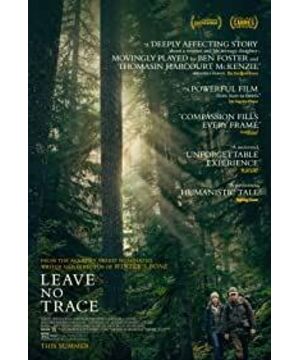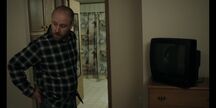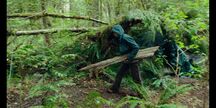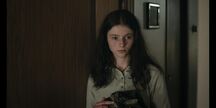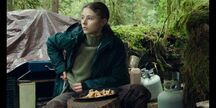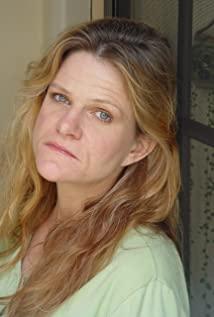The film begins with a contradiction. As the daughter grows up, the life of the father and daughter isolated in the forest gradually becomes unbalanced. The two people's needs for life cannot be reconciled, and they finally separate.
At the beginning and end of the film, close-ups of spider webs seem to symbolize that everyone is in the center of their web and independent of each other. Layers of nets are layered on top of each other, and the lines are complex, composed of past experiences and instinctive desires. People rely on for survival and are also limited by this. His father is a war veteran, suffering from severe post-traumatic stress disorder, unable to reintegrate into the community. My daughter felt the warmth of the community while getting along with others. She also knew the danger, hardship and loneliness of living alone in the forest, and she didn't want to leave the crowd anymore.
Just like the metaphor of a honeycomb, for a daughter, a person can withstand five hundred bites. It is worthwhile to feel the warmth and sweetness of the honeycomb at the cost of being stung by a bee. She is still young, unmanned, and has the energy to take the risk of being harmed into the community, take off her gloves and hat, and accept people in the community unguardedly. The father saw his daughter's bare hands touching the bees capable of harming her, and his hands were covered with sweet honey. He hid himself under the protection of a bee-proof mask and gloves, with a complex expression.
The father loves his daughter very much. He tried hard to integrate into the farm life, and he put his daughter's feet on his belly to warm him when it was freezing. The image of the seahorse appeared three times in the film, including the picture in the book, the necklace found on the roadside, and the orange peel resembling a seahorse. The hippocampus is raised by males, symbolizing the living conditions of the father and daughter. The father raised his daughter alone in the forest and taught her a little bit higher knowledge than her peers.
The most memorable clip is: the father wakes up from a nightmare in the middle of the night, and the daughter wakes up, using the easy daily question "what is your favorite color" to disperse the fear and anxiety of the father.
The state of my father when he answered "yellow" seemed to have just breathed out from suffocation. I first looked forward and thought for a few seconds, as if thinking of some good memories, he laughed, and finally loosened his frowning brows slightly, and replied with an upward tone: "Yellow".
But when the two people needed different lives, they didn't force each other. The daughter said, "I know you can do it, you will stay," and forgave the father's persistence to leave. The father looked at his daughter reluctantly, weeping in silence, took the burning iron pestle from the daughter, and acquiesced to her silent request to stay. Despite the deep bond between father and daughter, they still respect each other's lives and respect their own lives.
So at the end of the story, the father and daughter bid farewell, one returned to the crowd, and the other went deep into the forest. Like two spiders, living in their own webs.
In addition, daughter Tom seems to have many invisible connections with Dell, the hostess of the RV. She is also a female male name with green eyes and curly hair. Dell seems to be Tom after many years. She regularly hangs supplies into the forest, leaving it to someone who lives in the forest, and takes away the empty bag left last time. At the end of the film, Tom also took the bag full of supplies, hung it on the tree, and took away the empty bag. The man who lived in the forest for many years was the father who had been separated.
View more about Leave No Trace reviews


